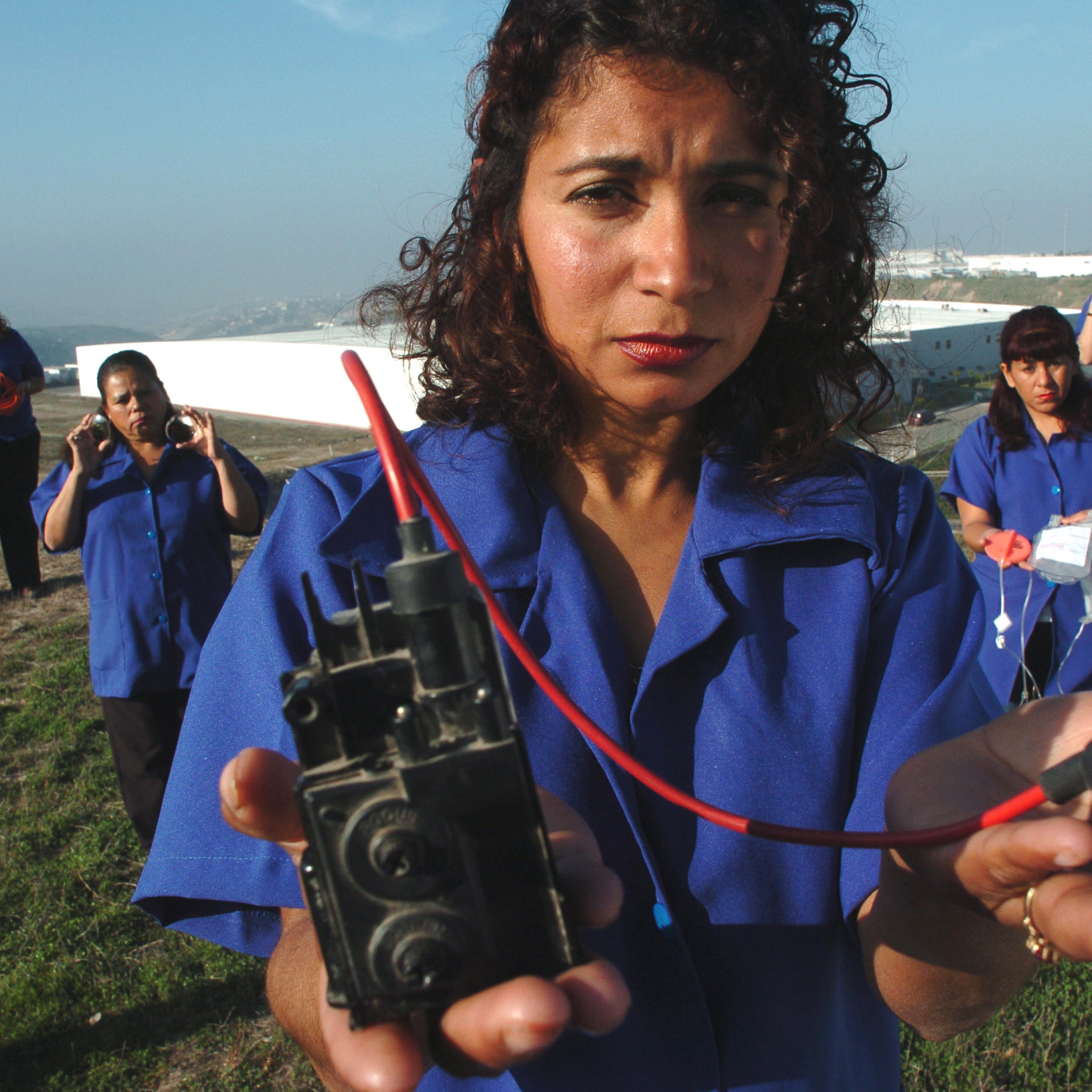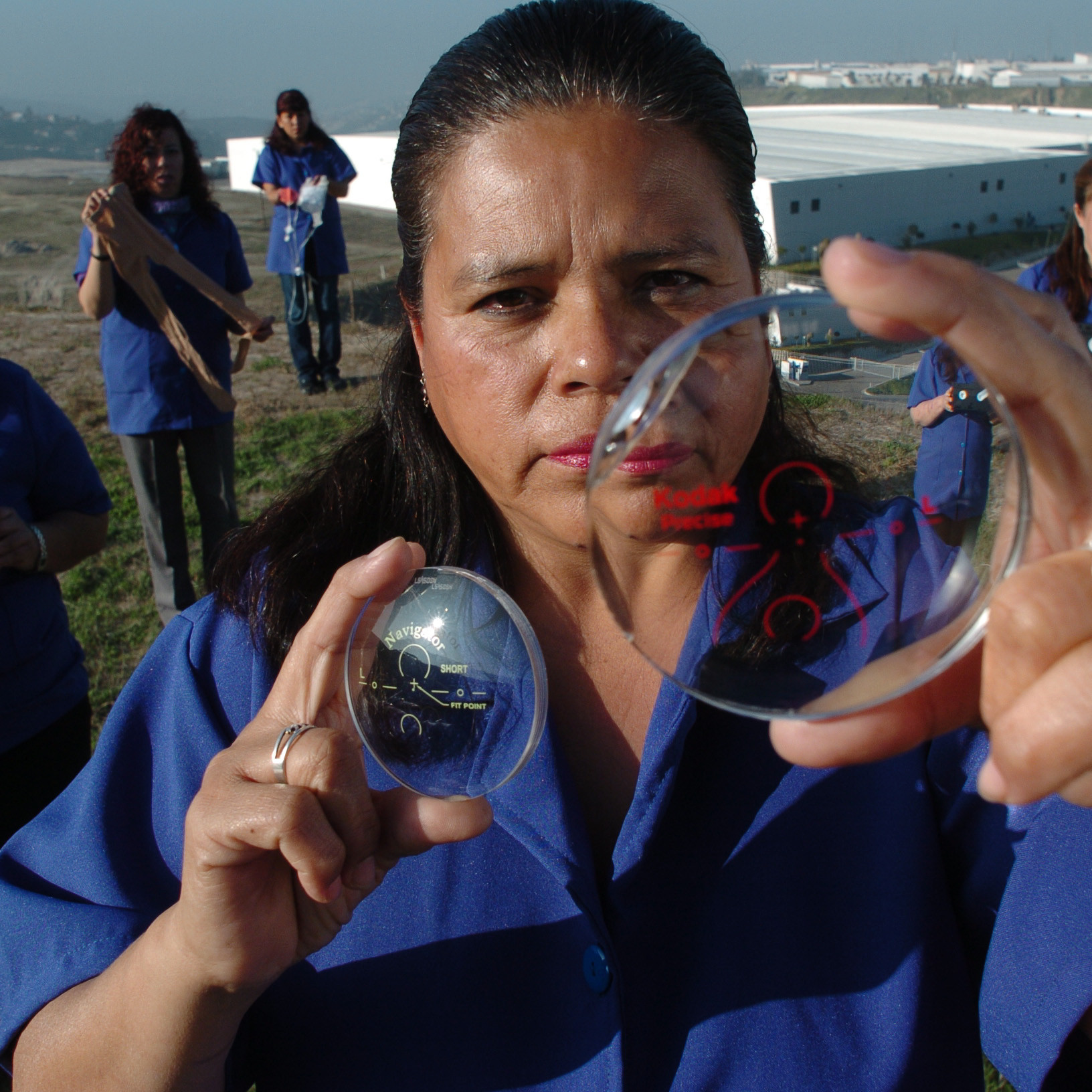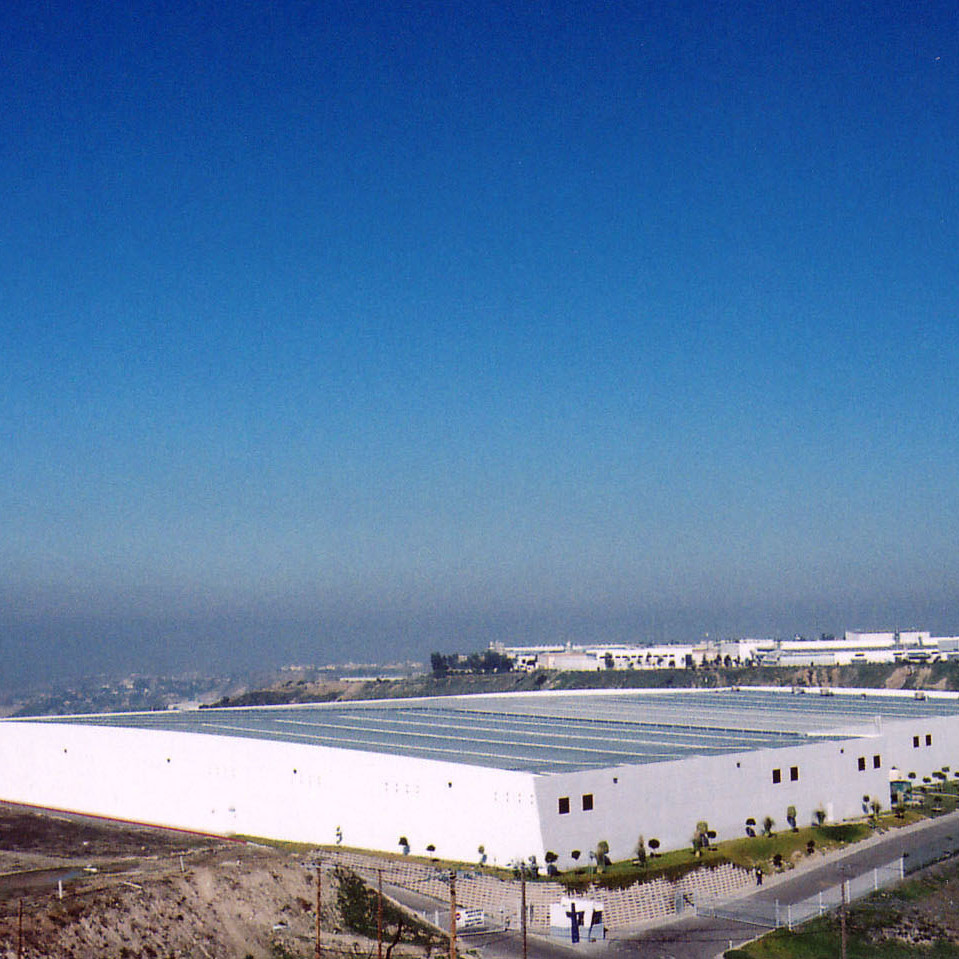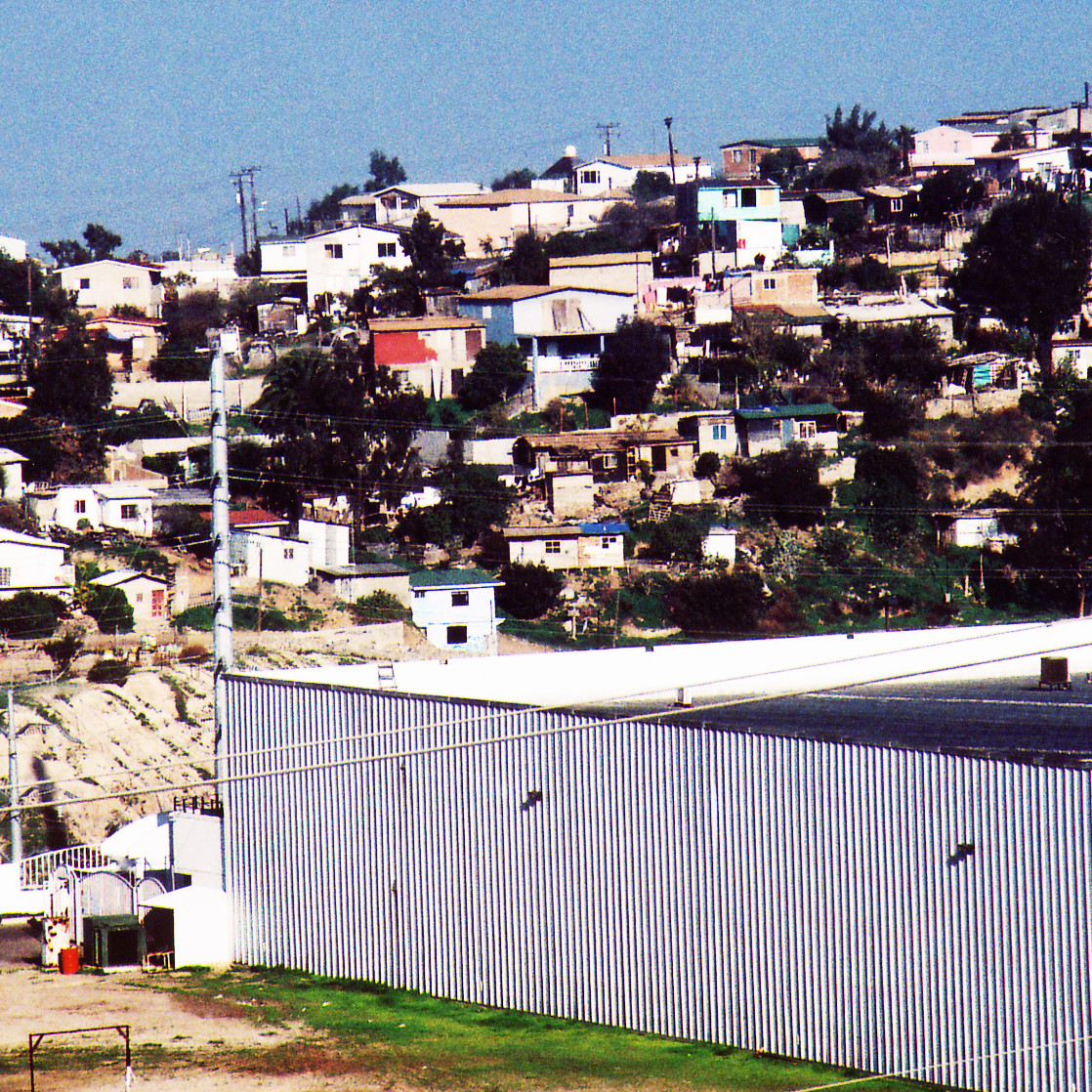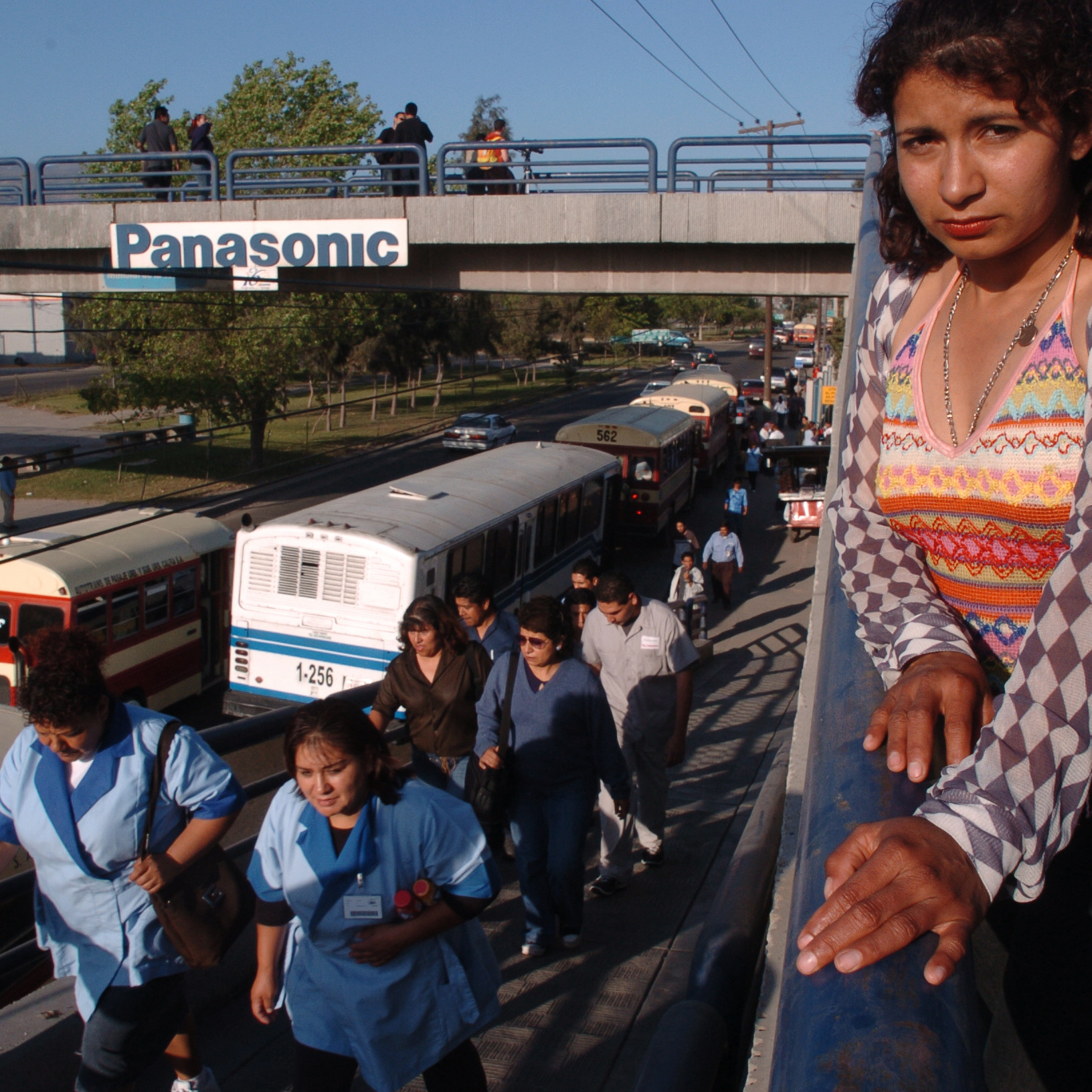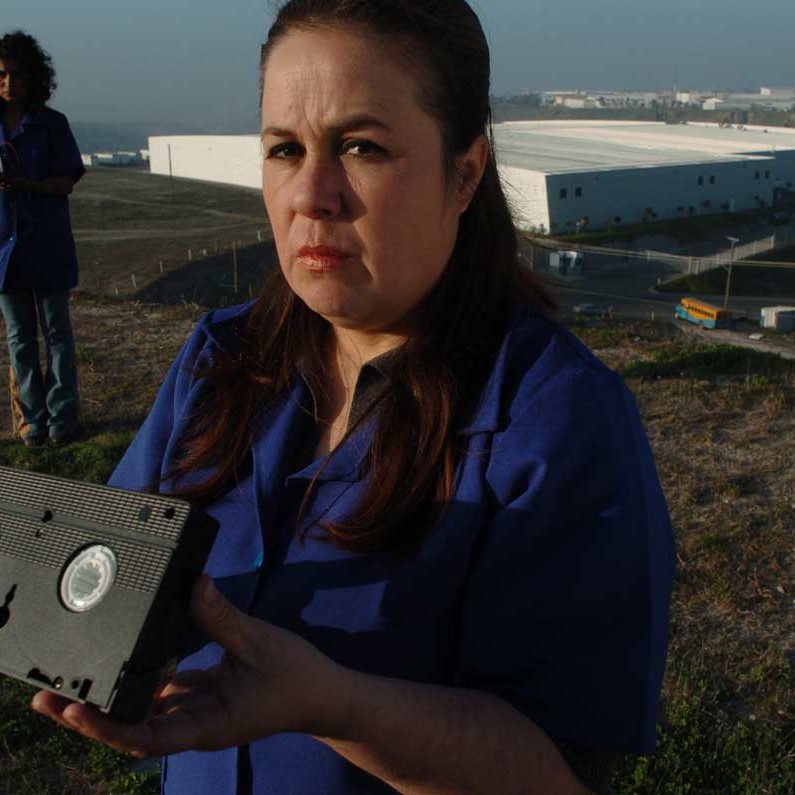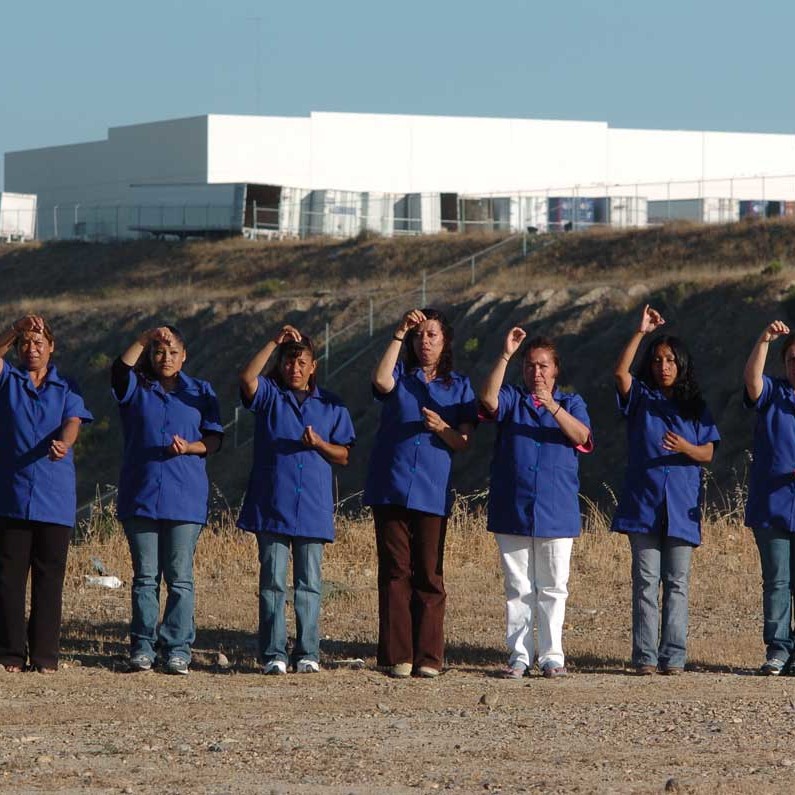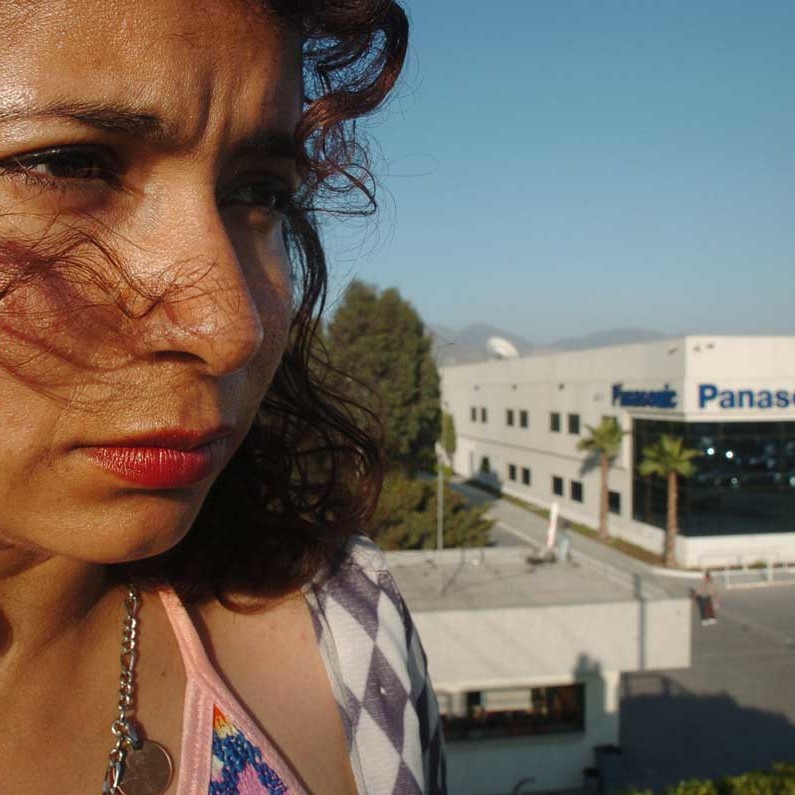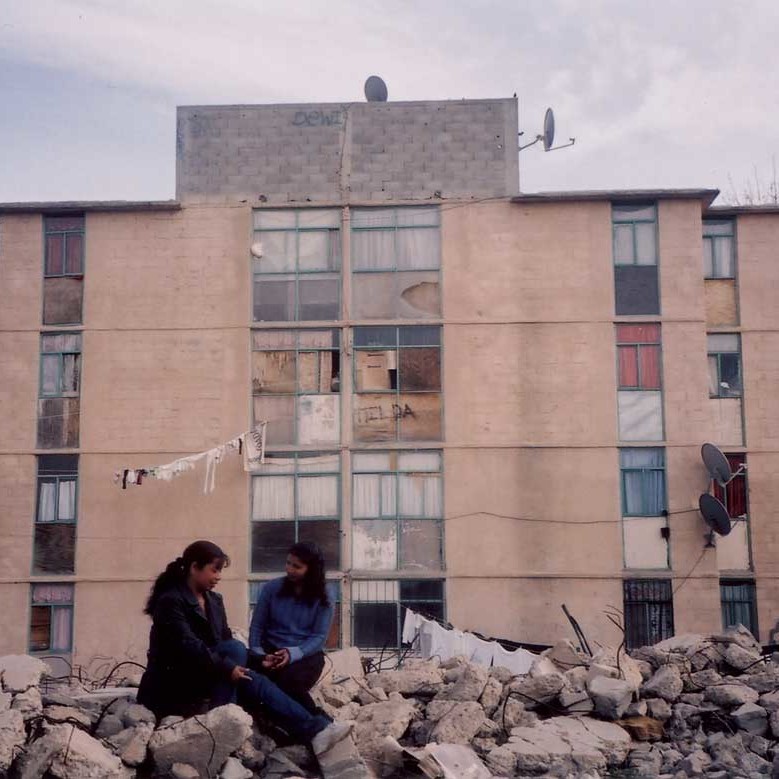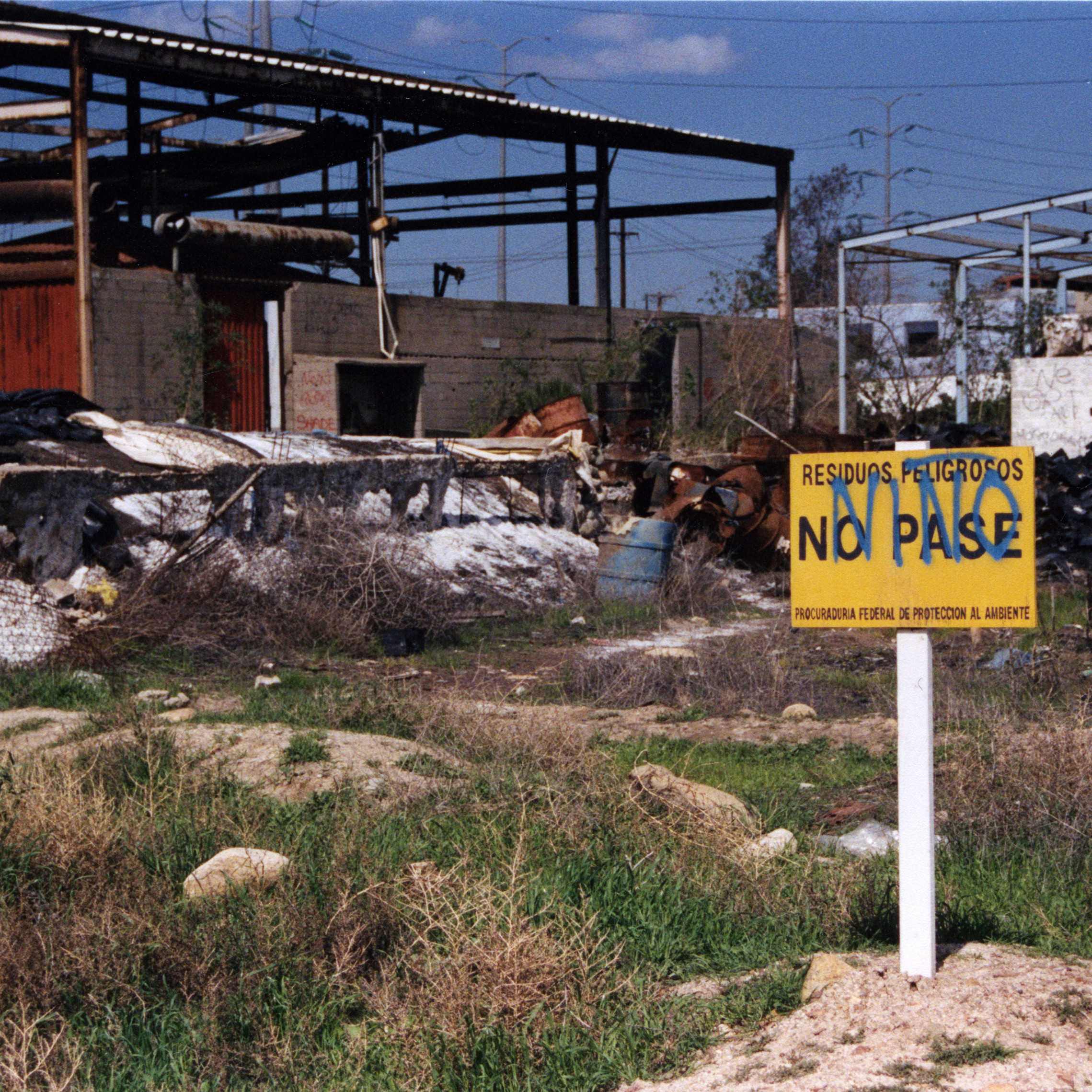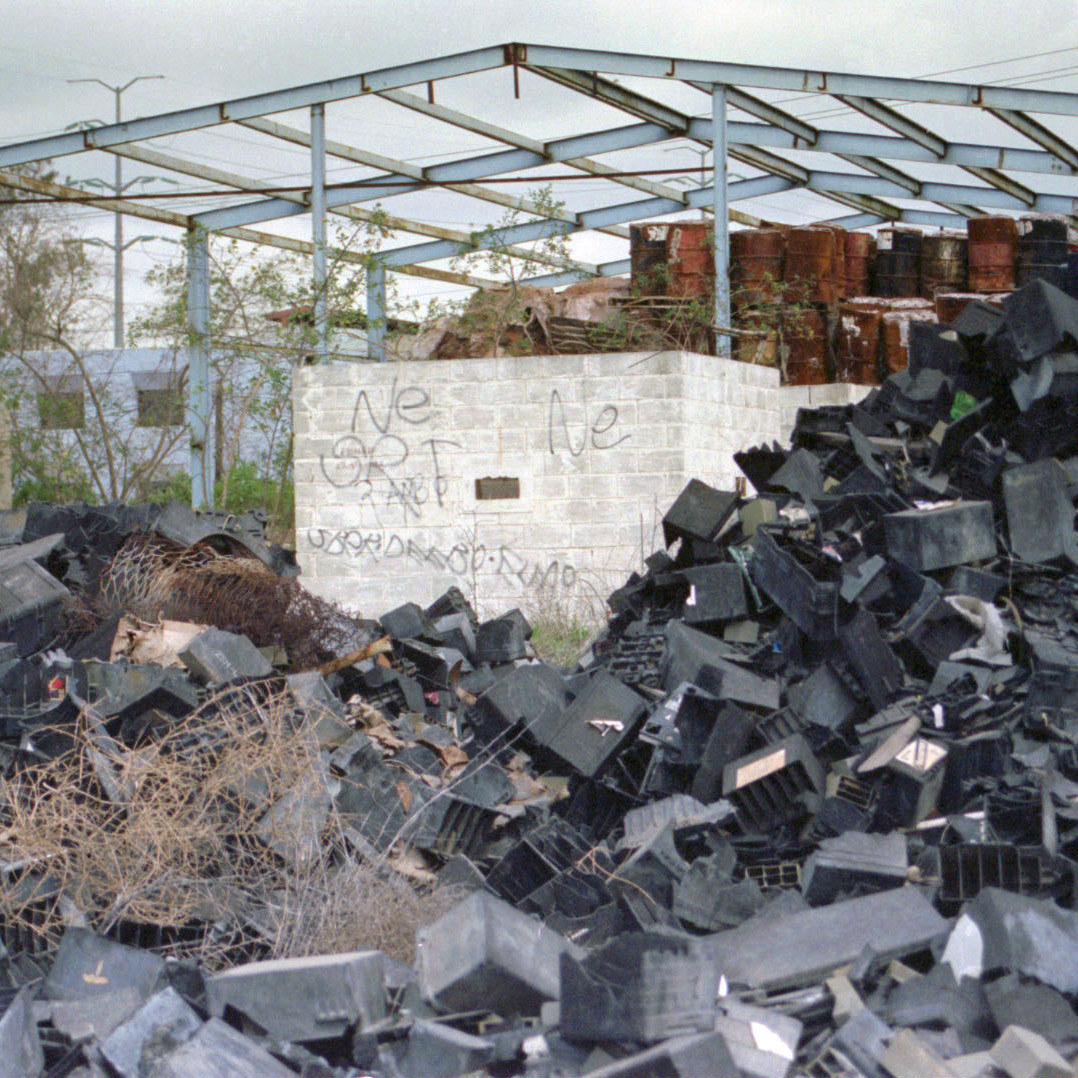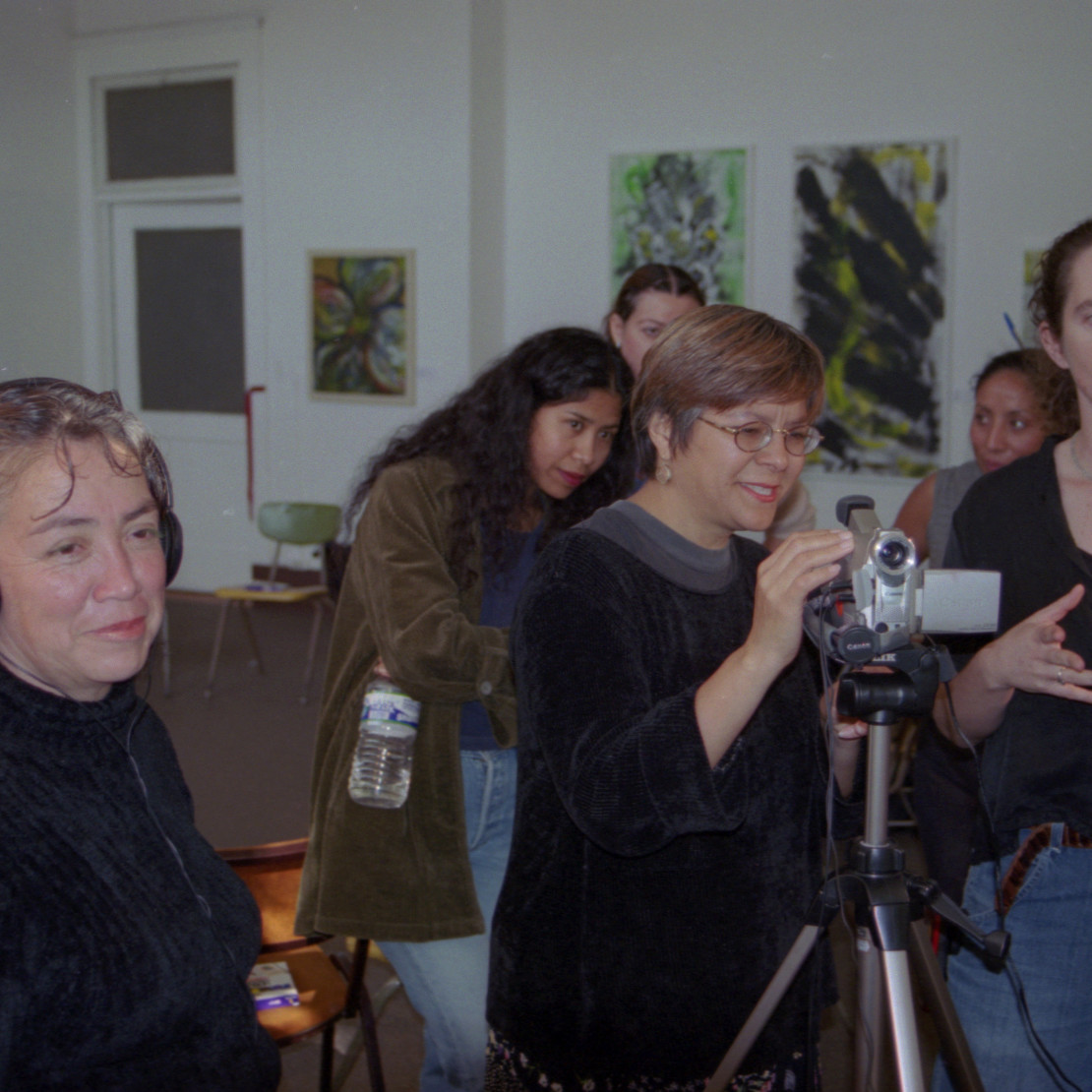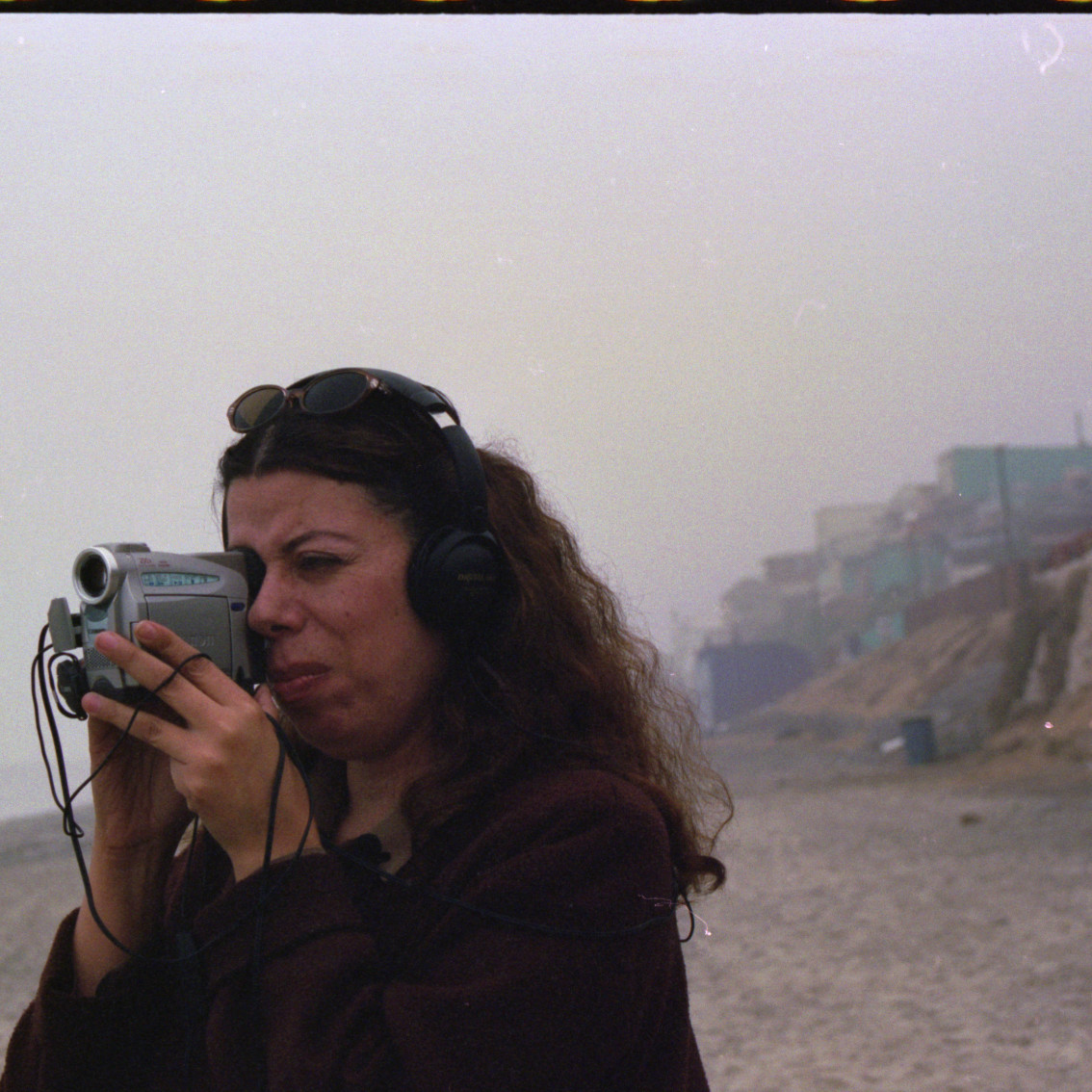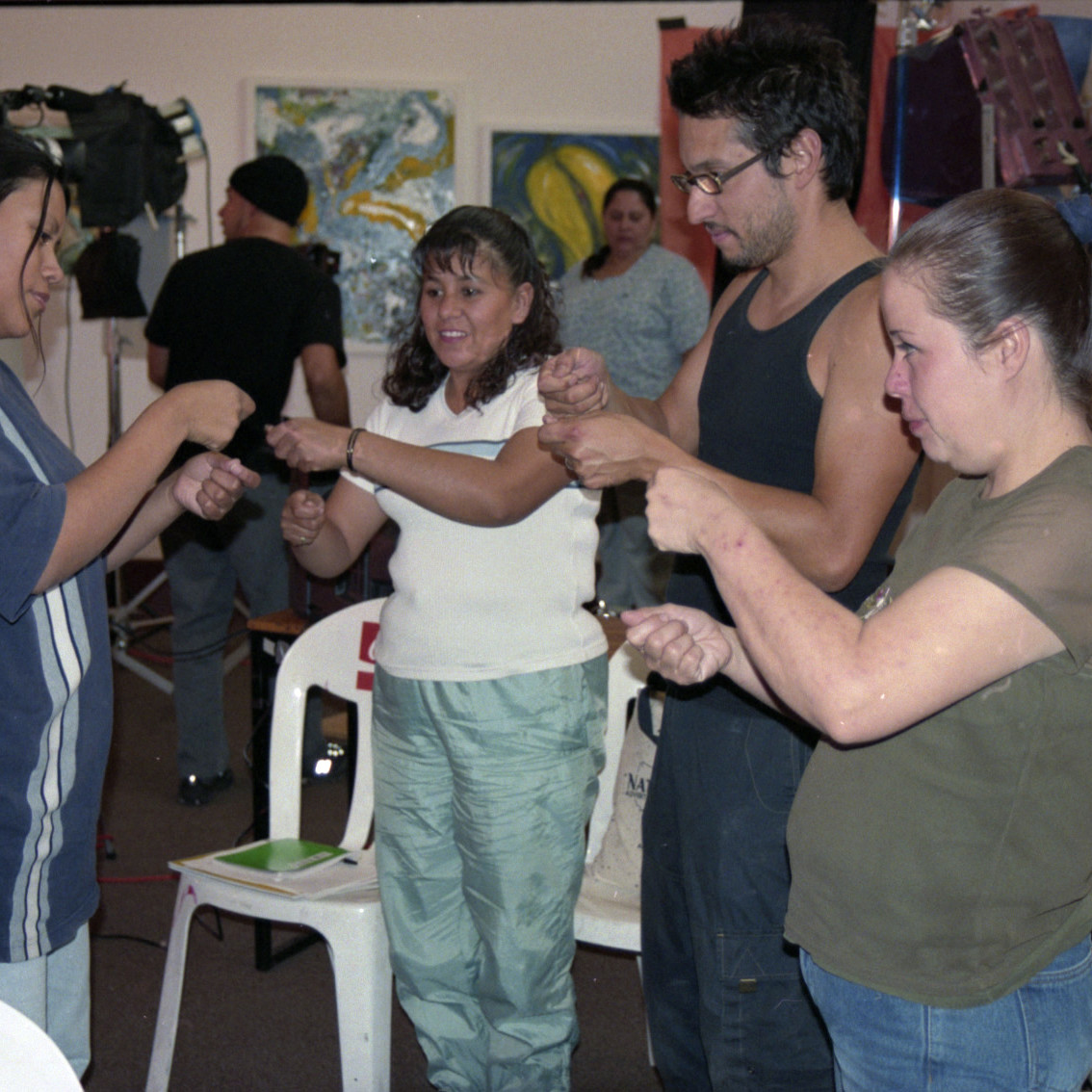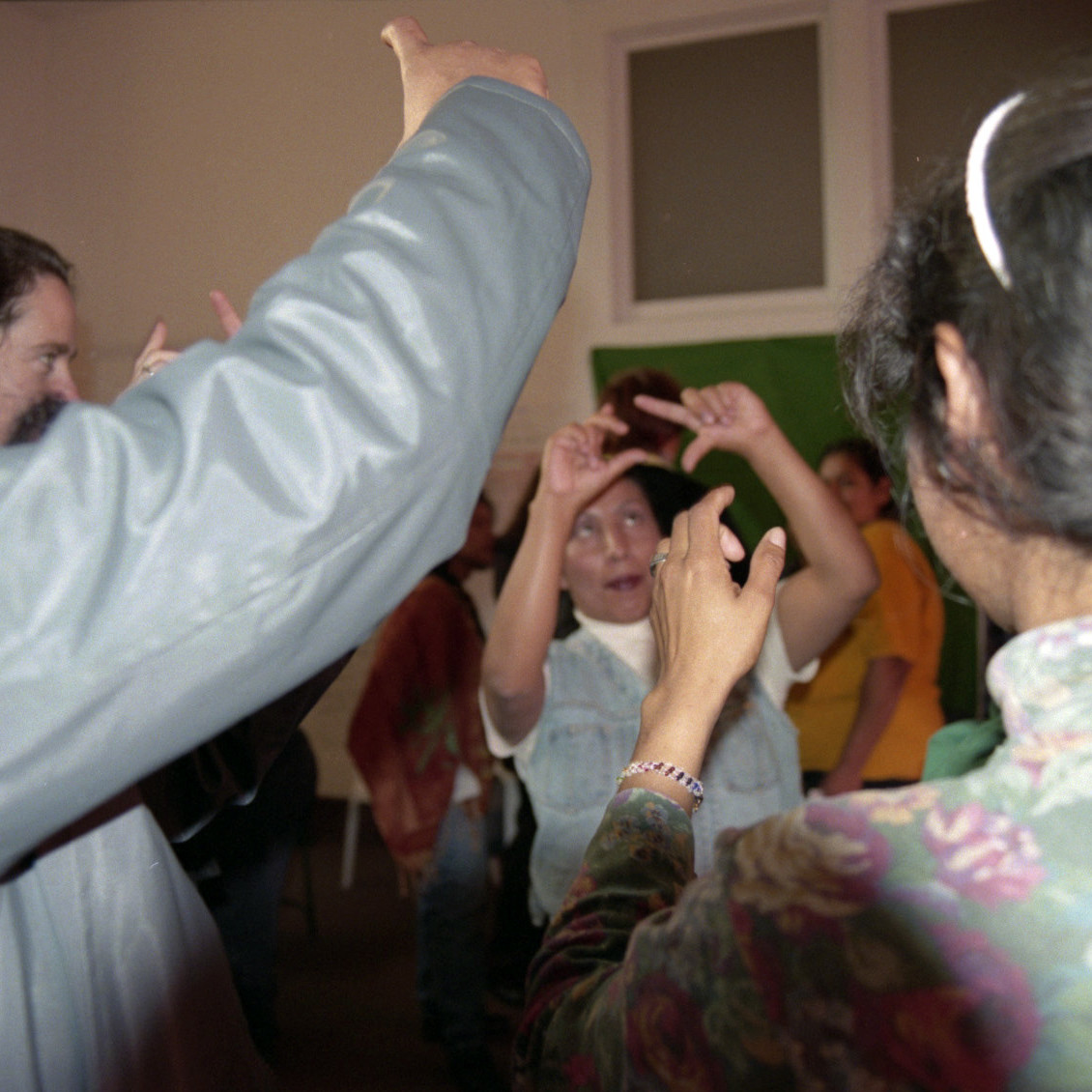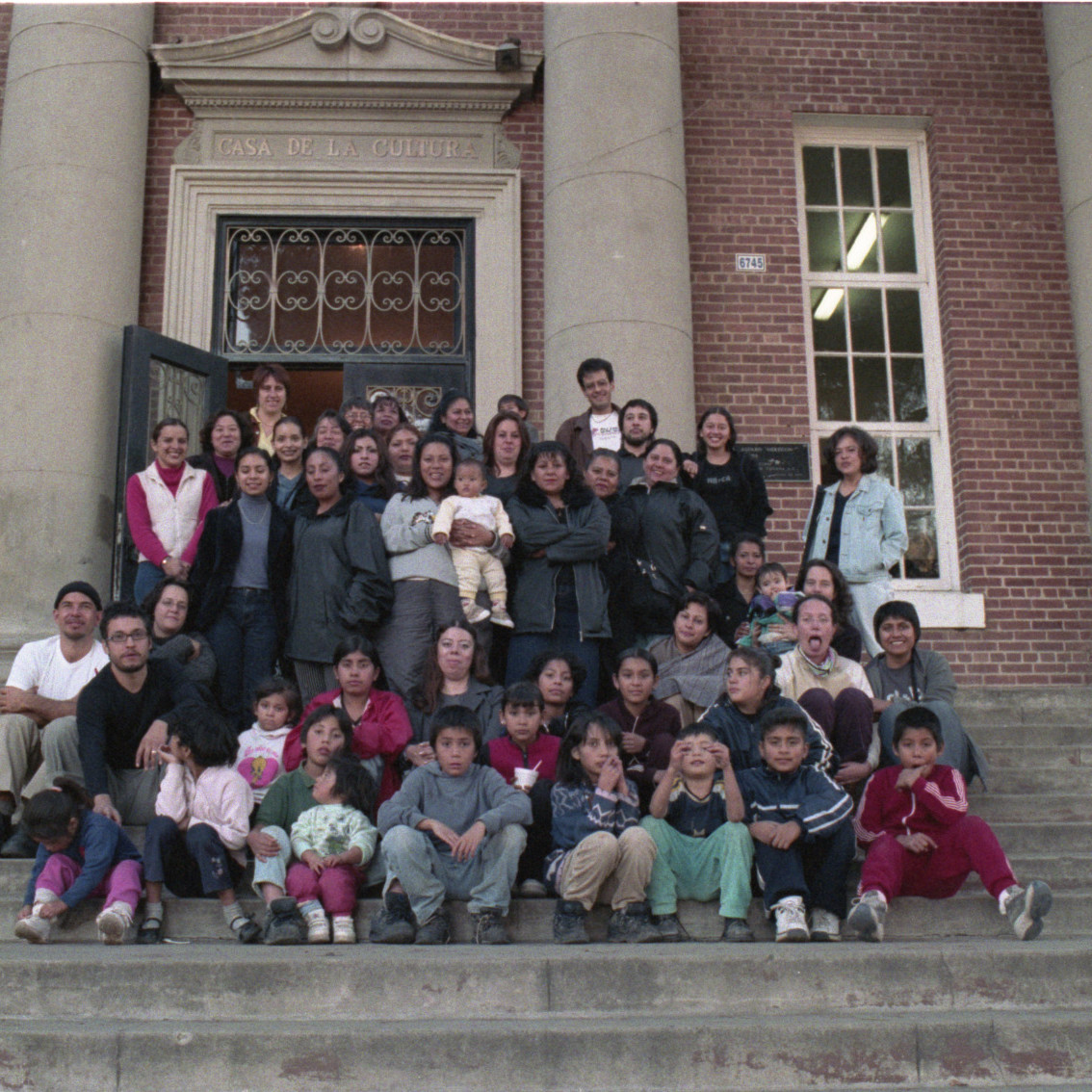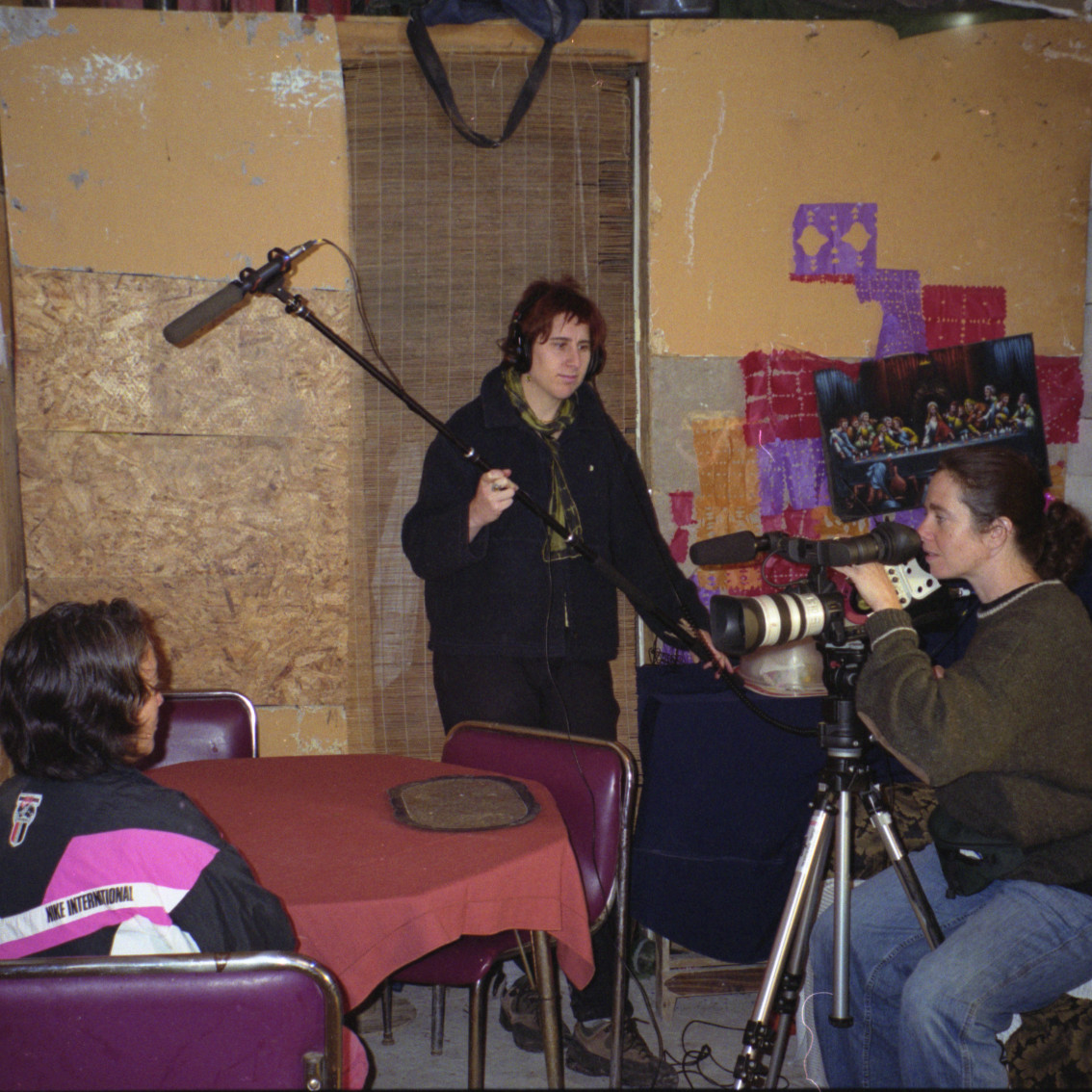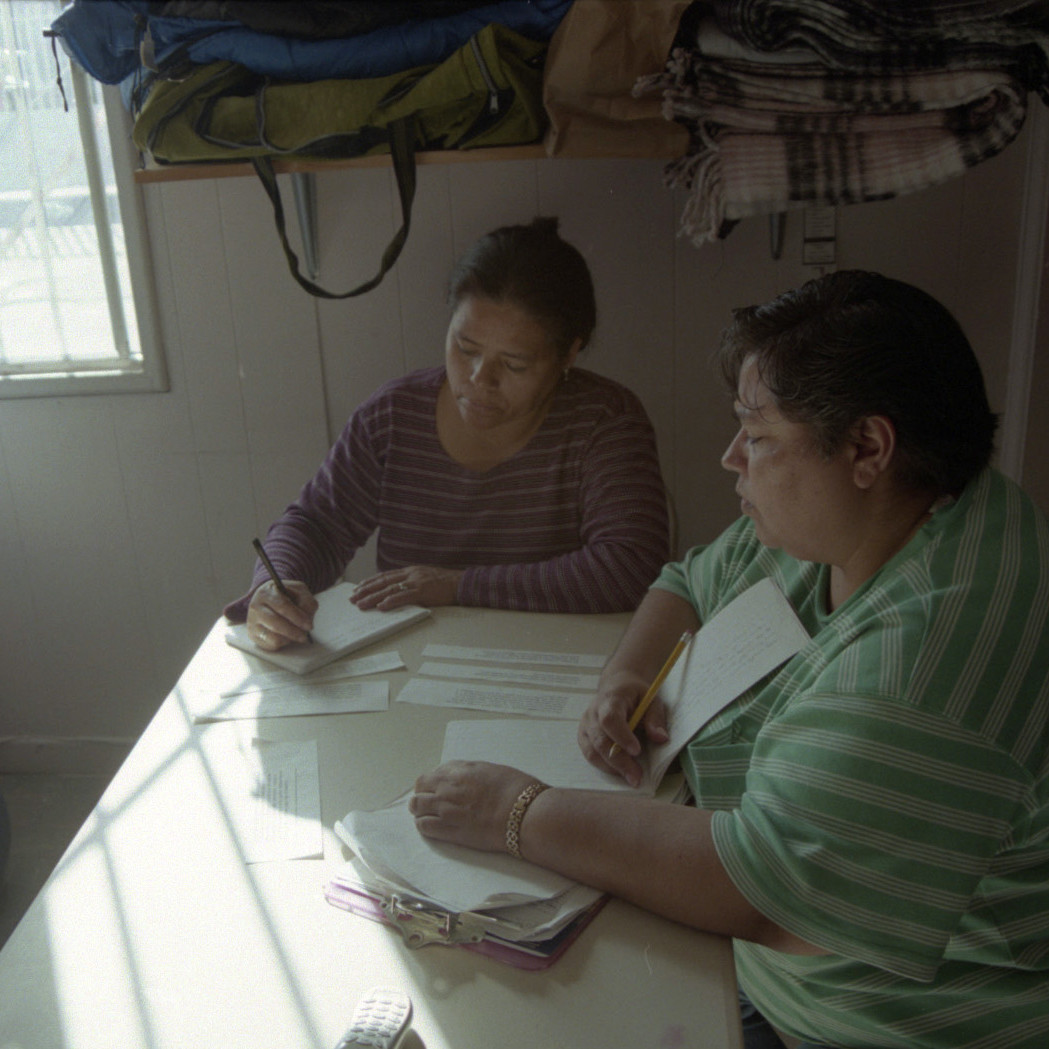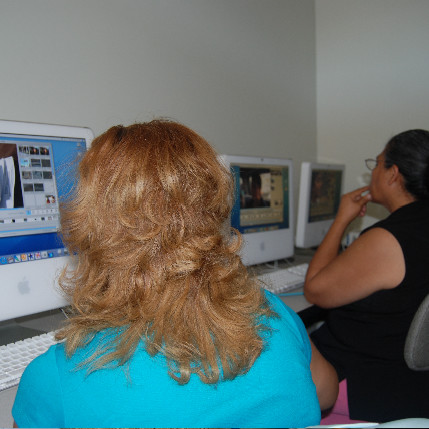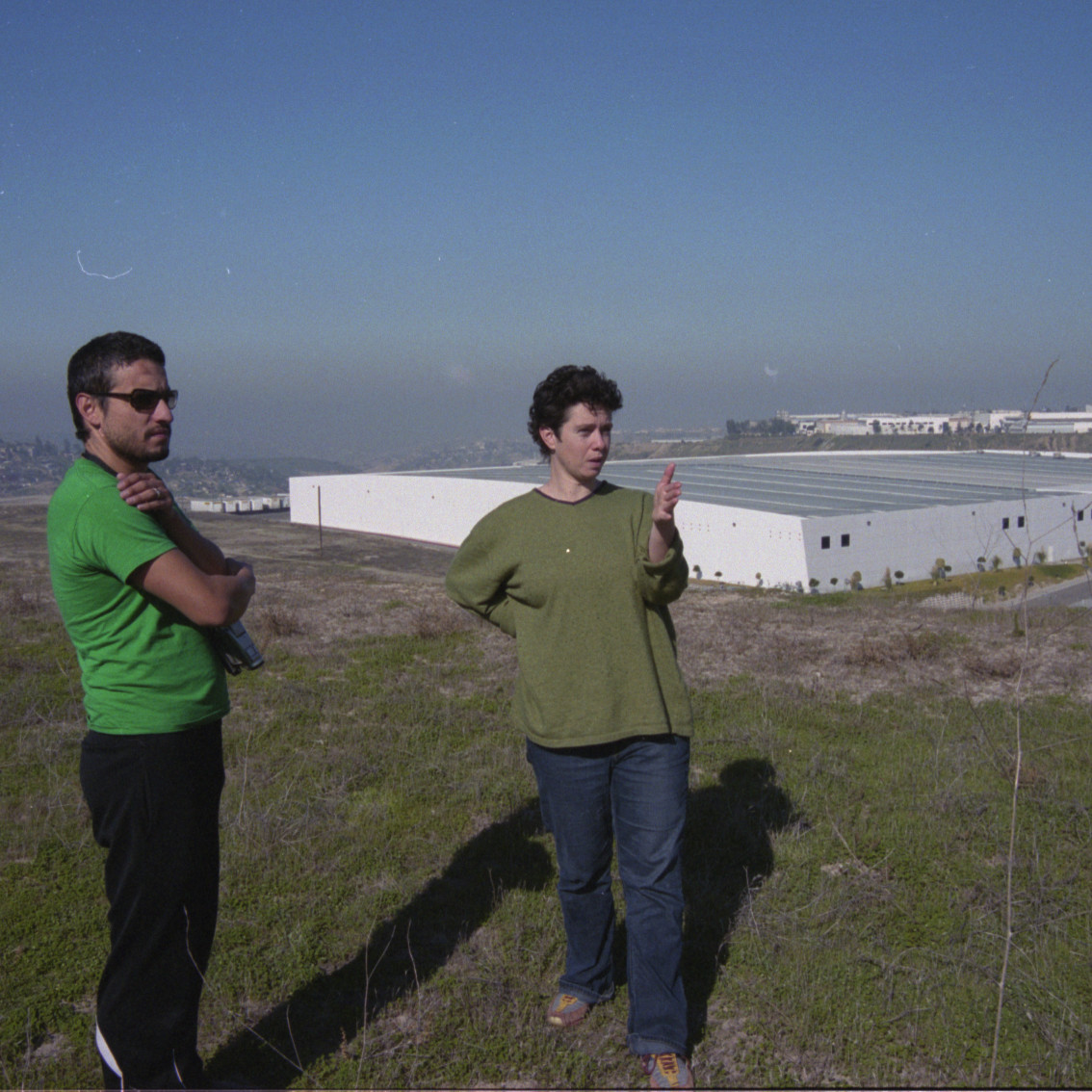About
2006 / Digibeta / 68 minutes
A feature documentary by Vicky Funari and Sergio De La Torre, in collaboration with the women of:
- Chilpancingo Collective for Environmental Justice
- Women’s Rights Advocates
- CITTAC, Workers’ Information Center
- Grupo Factor X, Women’s House
a co-production of the Independent Television Service (ITVS)
a project of Creative Capital
supported by a grant from the Sundance Institute Documentary Fund
The Film
Carmen and Lourdes work in Tijuana’s maquiladoras, the multinationally-owned factories which came to Mexico for its cheap labor. Each day these factory workers confront labor violations, environmental devastation and urban chaos — life on the frontier of the global economy. In MAQUILÁPOLIS, Carmen and Lourdes reach beyond the daily struggle for survival to organize for change: Carmen takes a major television manufacturer to task for violating her labor rights. Lourdes pressures the government to clean up a toxic waste dump left behind by a departing factory. The women also use video diaries to chronicle their lives, their city and their hopes for the future.
As they work for change, the world changes too: a global economic crisis and the availability of cheaper labor in China begin to pull the factories away from Tijuana, leaving Carmen, Lourdes and their colleagues with an uncertain future. As promotoras – community advocates who fight for social justice – Carmen and Lourdes serve as role models for taking action in the face of adversity.
The Process
We began the Maquila Project in 2000, by inviting factory workers in Tijuana and community organizations in Mexico and the U.S. to join us in creating a film that depicts globalization through the eyes of the women who live on its leading edge. The factory workers who appear in the resulting film MAQUILÁPOLIS [city of factories], have been involved in every stage of production, from planning to shooting, from scripting to outreach. We wanted to engage in a collaborative process that would break with the traditional documentary practice of dropping into a location, shooting and leaving with the “goods,” which would only repeat the pattern of the maquiladora itself. We sought to merge art-making with community development and to ensure that the film’s voice would be truly that of its subjects.
One thing all the workers in MAQUILÁPOLIS had in common was a sense of agency: they were promotoras, women who sought out training in human rights, labor rights and environmental justice from non-governmental organizations (NGOs) and who became advocates committed to passing their knowledge on to their communities. When we met the promotoras, they were each at a point of discovery in their lives, blossoming as women, human beings and activists. We knew that working with them would be an amazing way to tell the intertwined stories of globalization, of the maquiladoras and of citizen activism. We hoped the collaboration would yield a documentary which would be useful to the promotoras and their communities. We also hoped to further the promotoras’ work by providing them with the equipment and skills to create their own videos in the future. After the completion of MAQUILÁPOLIS, we continued to work with the same group of promotoras as well as a broad cohort of partner organizations on a Binational Community Outreach Campaign.
The Campaign
Our Binational Community Engagement Campaign, designed and implemented collaboratively with factory workers and stakeholder organizations in the U.S. and Mexico, used MAQUILÁPOLIS in diverse education and advocacy contexts to create meaningful social change around the issues of globalization, social and environmental justice and fair trade. The primary strategy was to use the film to promote dialogue and as an organizing tool: to get people involved and mobilized for change and to support cross-issue and cross-border activism.
Our campaign team included dedicated activists on both sides of the border, mediamakers commmited to social change, and most importantly a group of women factory workers struggling to bring about positive change in their world. Our core Campaign Partners were: Chilpancingo Collective for Environmental Justice; CITTAC/Worker’s Information Center; Binational Feminist Collective; Environmental Health Coalition; Global Exchange; Maquiladora Health and Safety Support Network; San Diego Maquiladora Workers Support Network; SweatFree Communities; and Women Thrive Worldwide. Other organizations have also partnered with us to organize and promote events, including the Sierra Club, Comité Fronterizo de Obreras (CFO/Border Workers’ Committee), Students Against Sweatshops and many others. The campaign ran formally from 2006-2009, and in some ways it continues informally to this day. We invite you to participate by using the film and the information available on our website in your own organization and community.
Filmmakers’ Statement
As to our personal motivations for making this film, we are both artists who believe that art can and does participate in a cultural dialogue concerning social change and justice. Our work is informed by our own hybrid lives: Vicky is a U.S. citizen who grew up in four countries and six cities, including Mexico City. Sergio is a U.S. and Mexican citizen who was raised in Tijuana and migrated to the San Francisco Bay Area as an adult. Our work on MAQUILÁPOLIS is part of our ongoing investigations into biculturality, migration, gender, and labor.
While films rarely effect measurable, concrete changes in the world, they are powerful tools: they open minds and create dialogue, necessary precursors to and ingredients of action. One of our great pleasures has been to watch this film open up new realms of thought, emotion and experience for audiences, just as the process of making the film opened our own minds and hearts. We hope that through this film viewers come to understand their own intimate relation with Tijuana, with Carmen, Lourdes and other maquiladora workers. We hope that people on both sides of the production/consumption equation begin to recognize each other as global citizens rather than simply as consumers and producers. We hope that people will understand that NAFTA-style treaties do not benefit the many but the few, and that one way to combat them is to support causes like those of the Chilpancingo Collective, CITTAC and the NGOs that organize to question and to resist the darker side of globalization. We hope that you will be inspired to action, so that the work of women like Carmen and Lourdes can lead to ever greater changes for the better, in Tijuana and around the world.
You can watch an interview with Vicky Funari and Sergio De La Torre on PBS.
2006 / Digibeta / 68 minutos
Un documental largometraje hecho por Vicky Funari and Sergio De La Torre, en colaboración con las mujeres de
- Colectivo Chilpancingo pro Justicia Ambiental
- Promotoras por los Derechos de las Mujeres
- CITTAC, Centro de Información para l@s Trabajador@s
- Grupo Factor X, Casa de la Mujer
una co-producción del Independent Television Service (ITVS)
un proyecto de Creative Capital
apoyado por una beca del Sundance Institute Documentary Fund
La Película
Carmen y Lourdes trabajan en unas maquiladoras en Tijuana, fabricas multinacionales que llegaron a México por su mano de obra barata. A diario, estas trabajadoras de la maquila enfrentan violaciones laborales, devastación medioambiental y caos urbano – la vida en la frontera de la economía global. En MAQUILÁPOLIS, Carmen y Lourdes sobrepasan la lucha diaria de sobrevivir y se organizan para lograr el cambio: Carmen demanda a un importante fabricante de televisores por haber violado sus derechos laborales. Lourdes presiona al gobierno para que limpie el sitio de deshechos tóxicos que dejó una fábrica. Las mujeres también usan video-diarios para documentar sus vidas, su ciudad y sus esperanzas para el futuro.
Conforme trabajan para lograr el cambio, el mundo cambia también: una crisis económica global y la disponibilidad de mano de obra más barata en China comienzan a atraer las fábricas fuera de Tijuana, dejando a Carmen, a Lourdes y a sus compañeras con un futuro incierto. Como promotoras – defensoras comunitarias que luchan por la justicia social – Carmen y Lourdes fungen como personas modelos para tomar acción, haciendo frente a la adversidad.
El Proceso
Iniciamos el Proyecto Maquila en el año 2000, invitando a unas trabajadoras de la maquila en Tijuana y a organizaciones comunitarias de ambos lados de la frontera México/Estados Unidos para colaborar en una película que represente la globalización a través de los ojos de las mujeres que la viven día a día. Las trabajadoras que aparecen en la película denominada MAQUILÁPOLIS [city of factories], han participado en todas las etapas de la producción, desde la planeación, el rodaje y la narración, hasta la difusión. Queríamos dedicarnos a un proceso de colaboración que rompiera con la práctica tradicional en los documentales, de caer en un lugar, filmar y marcharse con el “material,” lo cual repetiría el patrón establecido por las mismas maquiladoras. Hemos tratado de fusionar el arte de la cinematografía con el desarrollo comunitario, y de asegurar que la voz de la película sea realmente la de sus sujetos.
Una cosa que tenían en común todas las trabajadoras que participaron en MAQUILÁPOLIS es que todas tenían un sentido común de fuerza: son promotoras, mujeres que buscaron capacitarse en materia de derechos humanos, derechos laborales, y justicia ambiental, por medio de programas ofrecidas por organizaciones no gubernamentales (ONGs), y que se han convertido en defensoras comprometidas a transmitir su conocimiento a sus comunidades. Cuando conocimos a las promotoras, ellas estaban en un punto clave de sus vidas, logrando su plenitud como seres humanos, como mujeres y como activistas. Sabíamos que el trabajar con ellas sería una manera maravillosa de relatar sus historias entrelazadas sobre la globalización, sobre las maquiladoras y sobre su activismo ciudadano. Esperábamos que su colaboración rindiera un documental que sería útil para las promotoras y sus comunidades. También esperábamos que el trabajo de las promotoras llegara más lejos, proporcionándoles el equipo y las aptitudes necesarias para que en el futuro ellas solas crearan sus videos. Después de haber completado MAQUILÁPOLIS, hemos seguido trabajando con el mismo grupo de promotoras, así como con una cohorte amplia de organizaciones asociadas en una Campaña de Difusión Comunitaria Binacional.
La Campaña
Nuestra Campaña de Difusión Comunitaria Binacional, diseñada e implementada colaborativamente con trabajadoras de la maquila y con organizaciones de ambos lados de la frontera EE.UU./México, usa MAQUILÁPOLIS en diversos contextos de educación y gestión para crear un cambio social significativo alrededor de los temas de globalización, de justicia social y ambiental, y de comercio justo. Nuestra estrategia principal fue la de usar la película para promover el diálogo y como una herramienta de activismo, para que la gente se involucre y se movilice, y para apoyar el activismo transfronterizo y trans-temático.
Nuestro equipo de campaña incluyó activistas comprometidos, en ambos lados de la frontera, cineastas comprometidos al cambio social y, aún más importante, un grupo de mujeres trabajadoras de la maquila que luchan para lograr un cambio positivo en su mundo. Nuestros socios principales eran: Colectivo Chilpancingo Pro Justicia Ambiental, CITTAC (Centro de Información para l@s Trabajador@s), Colectiva Feminista Binacional, Environmental Health Coalition (Coalición Pro Justicia Ambiental), Global Exchange, Maquiladora Health and Safety Support Network, SweatFree Communities (Comunidades Pro Trabajo Digno), y Women Thrive Worldwide (Mujeres Prosperando Mundialmente). Otras organizaciones también se han asociado con nosotros para organizar y promover eventos, incluyendo el Sierra Club, el Comité Fronterizo de Obrer@s, Students Against Sweatshops y muchos otros.
La campaña tomó lugar formalmente desde el 2006 al 2009. Sigue en formas más sencillos e informales hasta el día. Los invitamos a participar utilizando el filme y la información disponible en nuestro sitio paraesta guía de discusión a mejorar su propia organización y comunidad.
Declaración del Cineasta
En cuanto a nuestras motivaciones personales para hacer esta película, ambos somos artistas con la creencia de que el arte participa en un diálogo cultural en relación al cambio social y a la justicia. Nuestro trabajo está basado en nuestras propias experiencias: Vicky es una ciudadana estadounidense que se crió en cuatro países y seis ciudades, incluyendo la ciudad de México. Sergio es un ciudadano mexicano-estadounidense que se crió en Tijuana. Después, siendo él ya un adulto, inmigró al Área de la Bahía de San Francisco. Nuestro trabajo en MAQUILÁPOLIS es parte de nuestras continuas investigaciones hacia la migración, el género, el biculturismo y cuestiones laborales.
Mientras que los filmes raramente efectúan cambios concretos y significativos en el mundo, ellos son herramientas muy poderosas: abren la mente y crean diálogo, precursores necesarios e ingredientes de la acción. Uno de nuestros más grandes placeres ha sido ver como esta película ha creado conciencia y ha causado emociones y experiencias al público, así como el proceso de hacerla abrió nuestras propias mentes y nuestros corazones. Esperamos que por medio de este documental el espectador llegue a comprender su íntima relación con Tijuana, con Carmen, con Lourdes y con las demás trabajadoras de las maquiladoras. Esperamos que las personas en ambos lados de la ecuación producción/consumo, comiencen a reconocerse como ciudadanos globales en lugar de ser simplemente productores y consumidores. Esperamos que la gente entienda que los tratados de libre comercio hechos al patrón del TLCAN no benefician a las masas populares sino a unos cuantos, y que la manera de combatirlos es apoyando causas como las del Colectivo Chilpancingo, CITTAC y de otras ONGs que se organizan para cuestionar y resistir el lado oscuro de la globalización. Esperamos que ustedes se inspiran a tomar acción, para que el trabajo de las mujeres como Carmen y Lourdes pueda llevar cambios siempre mayores para el bienestar, en Tijuana y alrededor del mundo.
Usted puede ver una entrevista con Vicky Funari y Sergio De La Torre en PBS.
See The Film
Team
Key Credits
a CineMamás film / un filme CineMamás
produced and directed by / producido y dirigido por
Vicky Funari
Sergio De La Torre
in collaboration with the women of / en colaboración con las mujeres de
Colectivo Chilpancingo pro Justicia Ambiental / Chilpancingo Collective for Environmental Justice
Promotoras por los Derechos de las Mujeres / Women’s Rights Advocates
CITTAC (Centro de Información para Trabajador@s) / Workers’ Information Center
Grupo Factor X, Casa de la Mujer / Factor X Group, Women’s House
coordinating promotoras / promotoras coodinadoras
Diana Arias
Lupita Castañeda
Tere Loyola
Lety Meza
collaborating promotoras / promotoras colaboradoras
Eva Bailón
Carmen Durán
Naty Guizar
Lucia Blanco
Lourdes Luján
Vianey Mijangos
Yesenia Palomares
Adela Rivera
Francis Rodriguez
Delfina Rodriguez
Blanca Sanchez
Rocio Salas
Coty Valdez
executive producer / productora ejecutiva
Vivian Kleiman
original score / música original
Pauline Oliveros
with / con
Bostich and Fussible / Nortec Collective
John Blue
additional performers / músicos adicionales
Lisa Barnard
Reynols
co-producers / co-productoras
Darcy McKinnon
Annelise Wunderlich
16mm cinematography / director de fotografia, 16mm
Daniel Gorrell
Sophia Constantinou
editor / montaje
Vicky Funari
sound edited and mixed by / editor y mezclador de sónido
Phil Perkins, CAS
At The See A Dog, Hear a Dog Co.
community development director / directora de desarollo comunitario
jesikah maría ross
Funding & Support
We are deeply grateful to all our funders! Thank you for believing in this film and in all it could do in the world!
¡Agradecemos de corazón a todos nuestros patrocinadores! Gracias por tener confianza en esta película y en su capacidad de hacer buen trabajo en el mundo!
a project of / un proyecto de
Creative Capital
produced in association with / producido en asociación con
ITVS
supported by grants from / apoyado con becas de
Sundance Institute Documentary Fund
California Arts Council
Corporation for Public Broadcasting
Creative Work Fund
Cultural Contact (formerly the U.S.-Mexico Fund for Culture)
Grousbeck Family Foundation
John Simon Guggenheim Memorial Foundation
LEF Foundation
Lucius and Eva Eastman Fund
National Endowment for the Arts
New World Foundation
Potrero Nuevo Fund
Threshold Foundation
Tides Foundation, advised by Avi Peterson
and generous private donors, including
Hilair Chism
Julia Query Wallace
Paul Rauschelbach
Twana Sparks
Richard Sutter Kueny
fiscal sponsor / patrocinador fiscal
Film Arts Foundation
Community Engagement Campaign funded by / la Campaña de Difusión Comunitaria fue apoyada por
Creative Capital Foundation
Creative Work Fund
Panta Rhea Foundation
Paul Robeson Fund for Independent Media
Potrero Nuevo Fund
San Diego Community Foundation / Lawyers’ Fund for Justice
Sunflower Fund
Threshold Foundation
and generous private donors, including
Betty Carr Muse
and Jackie Warfield
More Credits
organizational partners / organizaciones colaboradoras
CITTAC, Worker’s Information Center / CITTAC, Centro de Información para Trabajador@s
Colectiva Feminista Binacional / Binational Feminist Collective
Colectivo Chilpancingo Pro Justicia Ambiental / Chilpancingo Collective for Environmental Justice
Environmental Health Coalition / Coalición para Salud Ambiental
Global Exchange / Intercambio Global
Grupo Factor X, Casa de la Mujer / Factor X Group, Women’s House
Maquiladora Health and Safety Support Network (MHSSN)
Promotoras por los Derechos de las Mujeres / Women’s Rights Advocates
San Diego Maquiladora Workers Support Network (SDMWSN)
SweatFree Communities
Women Thrive Worldwide
Women’s Rights Advocates
associate producers / productoras asociadas
Sasha Khokha
Avilla Peterson
video camerawork / cámara de video
Vicky Funari
Sergio De La Torre
Lupita Castañeda
Carmen Durán
Lourdes Luján
Yesenia Palomares
assistant camera / asistente de cámara
Bill Basquin
Andrew Eckmann
Daniel Rico
helicopter pilot / helicóptero
Ivor Shier
aerial photography / fotografia aerea
Martin Zimmerman
production coordinator / coordinador de producción
Sergio Brown
editing consultant / asesora de edición
Heidi Plumb
on-line editors / editores on-line
Video Arts
Ed Rudolph
Jesse Spencer
visual effects / efectos especiales
Phoenix Edit•Effects•Design
John Crossley
Matt Silverman
Bobby Van Dyke
production assistants / asistentes de producción
Octavio Castellanos
Juan Angel Cota
Ingrid Hernández
Itzel Martínez
Jorge Nava
Bill Parker
Daniel Rojo
Giancarlo Ruiz
assistant editor / asistente de edición
María Langhi
stills photographer / foto fija
David Maung
advisors / asesoria
Robin Alexander
Garrett Brown
Mariana Bustamante
Rosa Linda Fregoso
Norma Iglesias Prieto
outreach advisor / asesor de difusión comunitária
Robert West
Working Films
executive producer for ITVS / productora ejecutiva para ITVS
Sally Jo Fifer
executive producer for P.O.V. / productora ejecutiva para P.O.V.
Cara Mertes
associate director of production for ITVS / director asociado para ITVS
Richard O’Connell
dedicated to our mothers / dedicada a nuestras madres
Barbara Jane Burriss Funari
María Esther De La Torre
Betty Carr Muse
Rosario Ulinskas
Angela Rodriguez
Maria Estela Ponce
Socorro Guizar Argote
Marichuy Gonzales
Socorro Rodriguez
Juana Castañeda
Tere Loyola
Maria Luisa Martínez Argote
Gildarda Díaz
Carmen Arteaga
Guadalupe Aguirre
Carmen Gaviño
Creditos Claves
a CineMamás film / un filme CineMamás
produced and directed by / producido y dirigido por
Vicky Funari
Sergio De La Torre
in collaboration with the women of / en colaboración con las mujeres de
Colectivo Chilpancingo pro Justicia Ambiental / Chilpancingo Collective for Environmental Justice
Promotoras por los Derechos de las Mujeres / Women’s Rights Advocates
CITTAC (Centro de Información para Trabajador@s) / Workers’ Information Center
Grupo Factor X, Casa de la Mujer / Factor X Group, Women’s House
coordinating promotoras / promotoras coodinadoras
Diana Arias
Lupita Castañeda
Tere Loyola
Lety Meza
collaborating promotoras / promotoras colaboradoras
Eva Bailón
Carmen Durán
Naty Guizar
Lucia Blanco
Lourdes Luján
Vianey Mijangos
Yesenia Palomares
Adela Rivera
Francis Rodriguez
Delfina Rodriguez
Blanca Sanchez
Rocio Salas
Coty Valdez
executive producer / productora ejecutiva
Vivian Kleiman
original score / música original
Pauline Oliveros
with / con
Bostich and Fussible / Nortec Collective
John Blue
additional performers / músicos adicionales
Lisa Barnard
Reynols
co-producers / co-productoras
Darcy McKinnon
Annelise Wunderlich
16mm cinematography / director de fotografia, 16mm
Daniel Gorrell
Sophia Constantinou
editor / montaje
Vicky Funari
sound edited and mixed by / editor y mezclador de sónido
Phil Perkins, CAS
At The See A Dog, Hear a Dog Co.
community development director / directora de desarollo comunitario
jesikah maría ross
Patrocinio y Apoyo
We are deeply grateful to all our funders! Thank you for believing in this film and in all it could do in the world!
¡Agradecemos de corazón a todos nuestros patrocinadores! Gracias por tener confianza en esta película y en su capacidad de hacer buen trabajo en el mundo!
a project of / un proyecto de
Creative Capital
produced in association with / producido en asociación con
ITVS
supported by grants from / apoyado con becas de
Sundance Institute Documentary Fund
California Arts Council
Corporation for Public Broadcasting
Creative Work Fund
Cultural Contact (formerly the U.S.-Mexico Fund for Culture)
Grousbeck Family Foundation
John Simon Guggenheim Memorial Foundation
LEF Foundation
Lucius and Eva Eastman Fund
National Endowment for the Arts
New World Foundation
Potrero Nuevo Fund
Threshold Foundation
Tides Foundation, advised by Avi Peterson
and generous private donors, including
Hilair Chism
Julia Query Wallace
Paul Rauschelbach
Twana Sparks
Richard Sutter Kueny
fiscal sponsor / patrocinador fiscal
Film Arts Foundation
Community Engagement Campaign funded by / la Campaña de Difusión Comunitaria fue apoyada por
Creative Capital Foundation
Creative Work Fund
Panta Rhea Foundation
Paul Robeson Fund for Independent Media
Potrero Nuevo Fund
San Diego Community Foundation / Lawyers’ Fund for Justice
Sunflower Fund
Threshold Foundation
and generous private donors, including
Betty Carr Muse
and Jackie Warfield
Más Creditos
organizational partners / organizaciones colaboradoras
CITTAC, Worker’s Information Center / CITTAC, Centro de Información para Trabajador@s
Colectiva Feminista Binacional / Binational Feminist Collective
Colectivo Chilpancingo Pro Justicia Ambiental / Chilpancingo Collective for Environmental Justice
Environmental Health Coalition / Coalición para Salud Ambiental
Global Exchange / Intercambio Global
Grupo Factor X, Casa de la Mujer / Factor X Group, Women’s House
Maquiladora Health and Safety Support Network (MHSSN)
Promotoras por los Derechos de las Mujeres / Women’s Rights Advocates
San Diego Maquiladora Workers Support Network (SDMWSN)
SweatFree Communities
Women Thrive Worldwide
Women’s Rights Advocates
associate producers / productoras asociadas
Sasha Khokha
Avilla Peterson
video camerawork / cámara de video
Vicky Funari
Sergio De La Torre
Lupita Castañeda
Carmen Durán
Lourdes Luján
Yesenia Palomares
assistant camera / asistente de cámara
Bill Basquin
Andrew Eckmann
Daniel Rico
helicopter pilot / helicóptero
Ivor Shier
aerial photography / fotografia aerea
Martin Zimmerman
production coordinator / coordinador de producción
Sergio Brown
editing consultant / asesora de edición
Heidi Plumb
on-line editors / editores on-line
Video Arts
Ed Rudolph
Jesse Spencer
visual effects / efectos especiales
Phoenix Edit•Effects•Design
John Crossley
Matt Silverman
Bobby Van Dyke
production assistants / asistentes de producción
Octavio Castellanos
Juan Angel Cota
Ingrid Hernández
Itzel Martínez
Jorge Nava
Bill Parker
Daniel Rojo
Giancarlo Ruiz
assistant editor / asistente de edición
María Langhi
stills photographer / foto fija
David Maung
advisors / asesoria
Robin Alexander
Garrett Brown
Mariana Bustamante
Rosa Linda Fregoso
Norma Iglesias Prieto
outreach advisor / asesor de difusión comunitária
Robert West
Working Films
executive producer for ITVS / productora ejecutiva para ITVS
Sally Jo Fifer
executive producer for P.O.V. / productora ejecutiva para P.O.V.
Cara Mertes
associate director of production for ITVS / director asociado para ITVS
Richard O’Connell
dedicated to our mothers / dedicada a nuestras madres
Barbara Jane Burriss Funari
María Esther De La Torre
Betty Carr Muse
Rosario Ulinskas
Angela Rodriguez
Maria Estela Ponce
Socorro Guizar Argote
Marichuy Gonzales
Socorro Rodriguez
Juana Castañeda
Tere Loyola
Maria Luisa Martínez Argote
Gildarda Díaz
Carmen Arteaga
Guadalupe Aguirre
Carmen Gaviño
Bios
Vicky Funari, Producer/Director/Editor: Vicky Funari is a documentary filmmaker, editor, and teacher. Funari produced, directed, and edited the feature documentaries MAQUILÁPOLIS (2006) and Paulina (1998); and she directed and edited Live Nude Girls Unite! (2000). These award-winning, critically acclaimed films have screened in many preeminent film festivals, including Sundance, Locarno, Havana, Rotterdam, SXSW, and Tribeca. Her films have won numerous awards, including Grand Jury Prize and Audience Awards at the San Francisco International Film Festival; Lifetime Television’s Vision Award at the Hamptons Film Festival; and Audience Award for Best Documentary at the Women’s International Film Festival of Barcelona. Her films have aired on PBS, HBO, the Sundance Channel, and Televisa. From 2006-2009, Funari directed the MAQUILÁPOLIS binational Community Engagement Campaign, using that film in conjunction with activist organizations and factory workers to promote public dialogue and social change. Funari has been editor and consulting editor on a wide range of projects, most recently the documentary Strong!, directed by Julie Wyman, which aired on the PBS strand Independent Lens in 2012. Funari is a Guggenheim Fellow and a MacDowell Colony Fellow. Funari is currently a Visual Media Scholar at Haverford College, where she teaches, designs interdisciplinary media projects, and programs documentary film series for the college. She is currently producing and directing two documentaries: one, currently in post-production, tells a story of healthy aging, community, and ladies in a pool; while the other, in development, is about American rivers and their environmental and human histories.
Sergio De La Torre, Producer/Director: As an artist and educator, Sergio De La Torre has worked with and documented the manifold ways by which citizens reinvent themselves in the city they inhabit, as well as site-specific strategies they deploy to move ‘in and out modernity.’ De La Torre’s work often invokes collaborations with the subjects and invites both intimate and critical reflections on topics related to housing, immigration and labor, to mention only a few. De La Torre purposely work with individuals from marginalized sectors of the cities he works in. In his work De La Torre has tried to approach the lives of these individuals, not as victim-subjects, but have attempted rather to reexamine the meaning of their actions in the context of shifting global conditions. These works have appeared in the 10th International Istanbul Biennial, Turkey; the Bienal Barro de America, Museo de Bellas Artes Caracas, Venezuela; in the Cleveland Performance Art Festival, Cleveland, Ohio; the Atelier Frankfurt, Germany; the Centro Cultural Tijuana; the Yerba Buena Center for the Arts in San Francisco; the TRIBECA Film Festival, New York; and el Festival Internacional de Cine de Morelia. Sergio De La Torre is an Associate Professor at the University of San Francisco Art and Architecture Department.
Press
“A portrait of the perils of globalization that admirably seeks new forms of expression… a stirring work that’ll provoke genuine outrage.” –Neil Genzlinger, The New York Times
“Making explicit the slogan ‘knowledge equals power,’ MAQUILÁPOLIS is the rare activist documentary that really does empower the individual women at the heart of its story.” –Jay Weissberg, Variety
“Argues not for special privileges but for a flicker of justice.” –Richard Corliss, Time
“Encourages an extension of our imaginations across boundaries of space or time through a visceral, bodily engagement with people on the screen… It is in a profound way the embodiment of a collaboration, and as such perhaps a model for an alternative and more just world, one based on a different notion of time, commmitment, and care than that which drives late stage capitalism.” –Irina Leimbacher, Camerawork
“Smartly relying on subjective diary footage taken by two untutored female organizers, the film bristles with anger, despair, hope, and a healthy dollop of self-conscious humor.” –Paul Arthur, Film Commment
“Se muestra la compleja problemática en la que se contraponen los intereses económicos de los inversionistas a los intereses de bienestar de los trabajadores.” –Patricia Blake, Frontera
“Brings into sharp relief the price of globalization and cheap labor.” –Jacqueline Blais, USA Today
“Industrial-strength desolation… reminds us that for all its glories, globalism can leave very dirty footprints.” –Dave Shiflett, Bloomberg.com
An article in La Jornada, about our 2007 Border Street Cinema Tour.
“El documental estará de gira por siete ciudades de la frontera norte. MAQUILÁPOLIS, la historia de las mujeres obreras que se niegan a ser víctimas.” –Tania Molina Ramirez, La Jornada
An article in Zócalo, about our 2007 Border Street Cinema Tour.
“Mostrarán ‘vida real’ de obreras de Acuña”
Other Critical Comment
“All who care about social justice, the environment, womens rights and labor rights, should view this film. MAQUILÁPOLIS should be screened in theaters, union halls, college campuses, and at the annual meeting of the World Social Forum. Many consider the U.S.-Mexico border to be ‘the laboratory of the future.’ In MAQUILÁPOLIS the border is also the site where global capitalism is facing profound resistance. MAQUILÁPOLIS is one of the most authoritative documentaries on cross-border organizing.” –Rosa-Linda Fregoso, Latin American and Latino Studies, University of California Santa Cruz
“MAQUILÁPOLIS is a compelling look at the high, hidden costs of the global economy. It puts human beings front and center. This film is a must see!” –Harley Shaiken, Professor, University of California, Berkeley
“MAQUILÁPOLIS is a wonderful fusion of expose and imagination, delivering an unprecedented look into the realities of life in the border communities where the maquiladoras reign. Made in collaboration with the women whose lives center on these secretive factories, MAQUILÁPOLIS succeeds in crossing borders and peering around corners to capture how the women caught in the contradictions of global capital understand their own positions. A key case study for anyone interested in transnational realities — and subjectivities.” –B. Ruby Rich, Social Documentation Program and Film + Digital Media Department, University of California Santa Cruz
More
Awards
- LASA Award of Merit in Film, 2007 Latin American Studies Association Film Festival
- Special Mention, Outstanding Achievement in Documentary, Tribeca Film Festival
- Audience Award for Best Documentary, Barcelona Women's Film Festival
- Jury Special Mention, Green Film Festival of Seoul
- Best Film About Borders and Migration, Contra el Silencio Latin American Documentary Encounter
- Special Mention, Amnesty Jury, CPH:DOX/Copenhagen International Documentary Film Festival
- Cine Golden Eagle
Selected Screenings
MAQUILÁPOLIS has screened at over 50 festivals worldwide, been broadcast on PBS, and has had many community-based and educational screenings as part of our Binational Community Engagement Campaign. A few highlights are below.
- World Premiere, International Film Festival Rotterdam
- Latin American Premiere, Guadalajara International Film Festival
- U.S. Premiere, Tribeca Film Festival, Documentary Competition, New York
- Contra el Silencio Latin American Documentary Encounter, Mexico City
- Hot Docs Canadian International Documentary Film Festival, Toronto
- Chicago Latino Film Festival
- INSITE / Centro Cultural Tijuana, Tijuana, Mexico
- Los Angeles Film Festival
- Barcelona International Women’s Film Festival
- Karlovy Vary International Film Festival, Karlovy Vary, Czech Republic
- Vancouver International Film Festival
- MadCat Women's International Film Festival, San Francisco Bay Area
- Morelia Film Festival, Morelia, Mexico, October 2006
- California Biennial, Orange County Museum of Art, Newport Beach, CA
- Muestra Internacional de Mujeres en el Cine y la Televisión, Mexico City
- National broadcast on the PBS series P.O.V.
- Copenhagen International Film Festival, Denmark
- Ambulante Travelling Documentary Festival, Mexico
- Museum of Modern Art, Documentary Fortnight, New York
- Street Cinema Border Tour, 18 community screenings along the U.S.-Mexico border
- Washington DC Environmental Film Festival
- Cine Las Americas International Film Festival, Austin, TX
- Thessaloniki International Documentary Film Festival
- Istanbul Biennial, Istanbul Foundation for Culture and Arts
- Yilan Green International Film Festival, Taipei, Taiwan
- Filmmor Women's Film Festival, Istanbul, Turkey
- “Women, Power, & Politics,” International Museum of Women, San Francisco
- Human Rights Film Festival Aeotearoa, New Zealand
- Latin American Film Festival, Utrecht, The Netherlands
- Women Labour Moves! Women's Film Festival, Vienna, Austria
- “Status Report,” BRIC Gallery, Brooklyn, NY
- Transitio_mx, International Electronic and Video Arts Festival. Mexico City
- Cable broadcast on the PBS series Global Voices
- MoMA / Museum of Modern Art, New York, NY
- MassMOCA exhibition, The Workers, North Adams, MA
- Hammer Museum, Los Angeles, CA
- Gender Matters: Feminist Ecologies and Materialities Symposium, Dartmouth College
